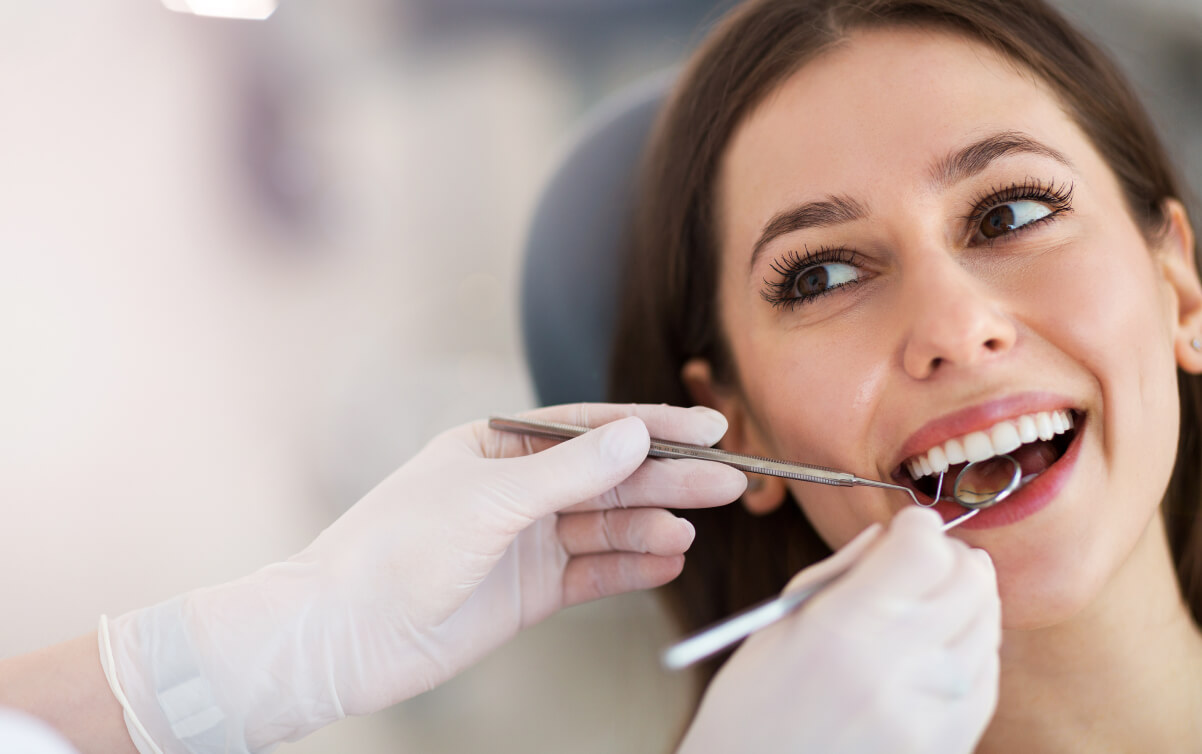Dentists Near Me Elkhorn NE
Do you dread going to the dentist? Don’t worry, you’re not alone! With so much information out there about which dental practices are best suited for your needs, picking a good one can be overwhelming. In this blog post, we’ll demystify the process of finding great dentists near Elkhorn NE. We’ll discuss what criteria to look for when assessing each practice plus how to identify whether the quality of care matches up with its price tag. Put your dental health first by taking a proactive approach and finding the very best dentists in your area!
The Importance of Dental Health for Overall Well Being
Dental health is an integral part of your overall well being, deserving careful attention. The well-being of your mouth, teeth, and gums not only has a direct impact on your oral health but also indirectly affects other aspects of your body’s well-being. Neglecting dental hygiene may result in detrimental consequences, such as gum disease and tooth decay, which, if left untreated, can escalate into more severe health issues like heart disease and diabetes.
Furthermore, the condition of your teeth and gums significantly influences your self-confidence and quality of life. A healthy and radiant smile not only enhances your appearance but also boosts your self-esteem, allowing you to exude positivity in your social and professional interactions.
Given these critical connections, it becomes evident that investing time and effort in maintaining good dental health is crucial for your overall health and wellbeing. By prioritizing dental care, you proactively contribute to a healthier you, both physically and emotionally.

Maintaining Oral Health
How to Know Which Dentist is Right For You
Choosing the right dentist involves several considerations.
- Reputation: Research reviews and recommendations about the dentist online. Pay attention to what current and former patients say about their experiences.
- Services: As dental needs vary from person to person, ensure the dentist offers a wide range of services that cater to your specific needs.
- Qualifications and experience: Check the dentist’s credentials and years of experience. Dental professionals with extensive experience are likely to be adept in handling complex cases.
- Equipment and Technology: Modern dentistry involves the use of advanced technologies for diagnosis and treatment. Verify whether the dental practice uses up-to-date equipment.
- Accessibility and Convenience: Choose a dentist located near your home or workplace. Consider their office hours and the ease of scheduling appointments.
- Environment: The dental office should be clean, tidy, and well-organized. The staff should be friendly and helpful.
- Cost and Insurance: Understand the cost of dental procedures and check if the dental office accepts your insurance.
Remember, open communication with your dentist is essential. Make sure you feel comfortable discussing your concerns and that your dentist listens and responds to your queries. The best dentist for you is one who meets your specific needs and makes your dental health a top priority.
Tips on How to Find the Best Dentists Near You
Here are some practical tips to help you in your search for the best dentists near you:
- Ask for Recommendations: Start your search by asking family, friends, or colleagues for recommendations. Personal experiences can give you a good idea of the quality of service a dentist offers.
- Search Online: Use the internet to your advantage. Search for dentists in your area, read reviews, and check out their websites for more information.
- Check Professional Associations: Many countries have professional associations for dentists. These platforms can be a reliable source to find certified and highly recommended dental professionals in your area.
- Set up Consultations: Once you have a list of potential dentists, set up consultations. This gives you a chance to meet the dentist, ask questions, and evaluate if the dental practice is a good fit for you.
- Trust your Instincts: Lastly, trust your gut feelings. If you feel comfortable and confident with a dentist, that’s a positive sign. Remember, a good dentist is not only skilled but also considerate of your comfort and concerns.
By following these tips and considering the factors mentioned, you can find a dentist who prioritizes your dental health and provides high-quality care.

Best Dentist Near Elkhorn NE
Questions to Ask During an Initial Consultation
During your initial dental consultation, it’s important to gather as much information as possible to help you make an informed decision. Here are some crucial questions you should consider asking:
- What preventative care do you recommend? Understanding the dentist’s approach to preventative care can provide insight into how they handle dental health.
- Can you explain the dental procedures you recommend in a way I can understand? This question assesses the dentist’s communication skills and their willingness to keep you informed about your dental health.
- What measures do you take to ensure patient comfort during procedures? The answer to this question can ease any anxiety you may have about potential pain or discomfort during treatments.
- How do you stay updated with the latest dental technologies and procedures? Ideally, your dentist should be committed to continued learning to provide the best care possible.
- What is your policy for handling dental emergencies outside of office hours? Knowing that your dentist has a plan for dental emergencies can give you peace of mind.
Remember, the goal is to establish a long-term relationship with your dentist, so take your time to ensure you’ve found the right fit for you.
Cost Considerations and Insurance Coverage Options
When it comes to dental care, costs can be a significant concern for many individuals. Depending on the type of treatment required, costs can vary considerably. However, you can manage these expenses effectively by understanding the various payment and insurance options available.
- Dental Insurance: Dental insurance can significantly reduce out-of-pocket expenses for dental procedures. Different insurance plans offer varying levels of coverage, often categorizing dental procedures into preventive, basic, and major services. Ensure to review your insurance plan carefully to understand what is covered and what your responsibility might be.
- Payment Plans: Some dental offices offer payment plans which allow you to pay for services over a specific period. These can be particularly useful for costly procedures. Always ask about available payment plans during your consultation.
- Discount Dental Plans: Discount dental plans are membership-based services offering discounts on various dental procedures from participating dentists. They are not insurance but can provide cost savings for individuals or families.
- Government Assistance Programs: Depending on your location, there might be government programs available to help with the costs of dental care, particularly for children, senior citizens, or individuals from low-income households.
- Health Savings Account (HSA) or Flexible Spending Account (FSA): If you have a high-deductible health plan, you may be eligible to contribute to an HSA or FSA. These accounts allow you to set aside pre-tax dollars to pay for eligible healthcare costs, including dental care.
Remember, while cost is an important factor, it should not be the sole determinant in choosing a dentist. The quality of care and your comfort with the dentist are equally important considerations. Be proactive in discussing costs and payment options with your dentist to ensure you receive the best care within your budget.

Dental Services
Benefits of Preventative Dentistry and Regular Checkups
Preventative dentistry plays a pivotal role in maintaining good oral health, aiming to prevent the onset or halt the progression of dental diseases. Regular check-ups are an integral part of this preventive approach. Here are some key benefits:
- Early Detection of Dental Problems: Regular dental visits allow your dentist to identify any potential issues early, such as cavities, gum disease, or oral cancer. Early detection often means simpler, less invasive, and more cost-effective treatment.
- Prevents Gum Disease: Regular professional cleanings are crucial in preventing gum disease, which can lead to tooth loss if left untreated. During these visits, plaque and tartar, which can’t be removed by regular brushing and flossing, are effectively removed.
- Maintains Good Physical Health: Recent studies have linked heart attacks and strokes to gum disease. Regular dental check-ups, which help maintain good oral health, can reduce your risk of such serious health conditions.
- Keeps Your Smile Bright: Regular cleanings prevent staining from food, drinks, and tobacco, keeping your smile brighter.
- Saves Money in the Long Run: By detecting and treating dental issues early, you avoid expensive treatments that might become necessary if problems are left untreated. Moreover, preventative care is often covered by insurance plans, which can save you money in the long run.
Remember, regular dental check-ups and preventative care are essential for maintaining good oral health and overall well-being. Don’t neglect your dental health; schedule regular visits with a trusted dentist to ensure a healthy and bright smile for years to come.
In conclusion, taking the time to find the right dentist and discussing costs and payment options can help you receive quality dental care within your budget. Preventative dentistry and regular check-ups are crucial for maintaining good oral health, preventing costly treatments in the long run. Remember to ask important questions during your initial consultation to ensure a positive and long-term relationship with your dentist. Don’t wait until you have a dental emergency; make your oral health a priority today.
